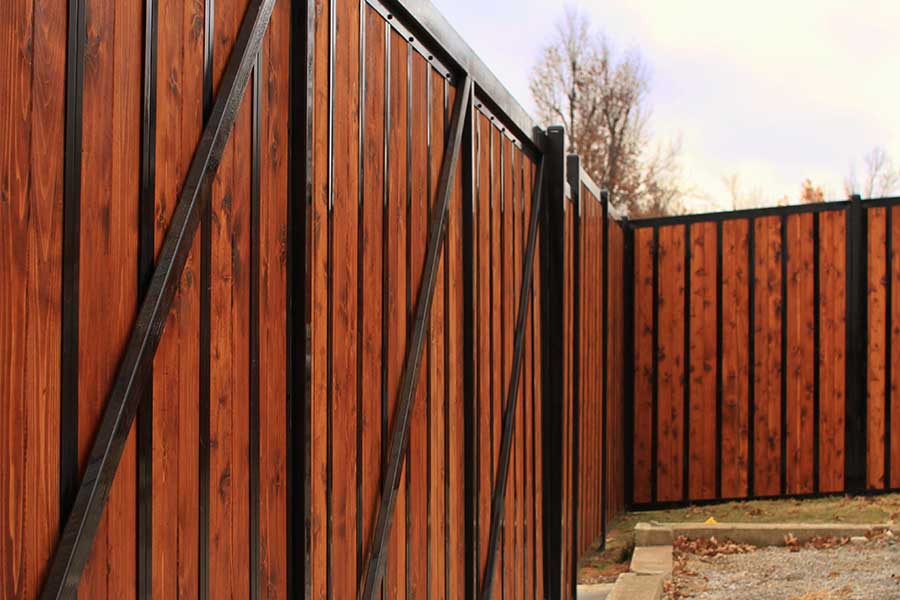All Categories
Featured

When intending a brand-new fencing for your residential or commercial property, it's easy to concentrate on the basic expenses-- products, setup, and labor. Nonetheless, numerous covert expenses can significantly affect your overall spending plan. If you're not prepared, these additional costs often go undetected but can swiftly include up. Below's a guide to some of the most typical covert costs to take into consideration when budgeting for your fence project.
- Permit Fees and Lawful Requirements. Before you begin excavating, it is very important to check if your area requires a permit to set up a fence. Numerous communities have zoning legislations that regulate fencing elevation, product, and placement, particularly if you're developing near a residential or commercial property line or in a community with a House owners' Organization (HOA) These laws ensure the fencing meets local criteria, yet they also come with connected prices.
Expense variety: $50 to $500, depending upon your place and the intricacy of your project. 2. Fencing Elimination and Disposal. If you're replacing an existing fencing, elimination and disposal of the old structure is an additional cost that can easily be ignored. Fence elimination typically includes disassembling the old fence, hauling away the products, and throwing away them properly. Disposal fees can vary, specifically if the old products call for unique handling, such as treated wood or metal.

Price range: $2 to $10 per linear foot for removal and disposal, depending upon the materials. 3. Land Prep Work and Excavation. If the land where your fencing is being installed is irregular, rocky, or covered in vegetation, it might need to be gotten rid of or leveled. Grading or excavation prices can add to your overall project expenses, specifically if you're mounting messages in hard-to-dig soil.
Expense variety: $300 to $2,000, depending on the website's problem. 4. Utility Line Recognition and Modifications. Before excavating, it's essential to guarantee that no below ground utilities, like water, gas, or electrical lines, will certainly be disrupted throughout the setup. Many contractors will certainly contact energy business to note these lines, yet there might be additional costs if changes are required to avoid destructive existing framework.
Price array: $100 to $500, relying on whether changes are required. 5. Personalized Characteristics and Upgrades. While your fundamental fence may include standard materials, you might intend to include personalized attributes like gateways, attractive panels, or incorporated illumination. Automatic gates or safety systems are especially expensive and require specialist installation. Adding these bonus enhances the complete cost of your fence, so make certain to factor them into your budget.

Price range: $100 to $1,500+ for attributes or gateways, relying on dimension and complexity. 6. Shipment and Transport Expenses. Depending upon where your materials are sourced, you may be charged a separate delivery fee for transferring the fencing materials to your home. This is particularly typical with heavy or huge orders, such as wood panels or metal fence. Shipment expenses can likewise vary based upon the distance between the provider and your area.
Cost array: $50 to $300 for shipment, relying on distance and the amount of materials. 7. Upkeep Costs With Time. Many types of fences, particularly timber fences, require continuous upkeep to remain in great problem. Regular jobs like discoloration, sealing, and cleansing will assist lengthen the life of your fence. Some materials, such as vinyl or metal, may be a lot more low-maintenance yet can still incur expenses for repair services or replacements if harmed.
Annual price variety: $50 to $300 for upkeep, depending on product and environment. 8. Weather condition Hold-ups. Mom Nature does not always cooperate with your timeline. If your installment is delayed by poor weather, such as rainfall or severe warmth, you may deal with extra labor costs if employees need to go back to finish the task at a later time. Hold-ups can additionally expand the task timeline, pushing back when the fencing is all set for use.
Cost variety: Variable, depending upon how much time the hold-up lasts. 9. Residential Or Commercial Property Line Disputes. Mounting a fencing near your property line can sometimes lead to conflicts with next-door neighbors. It might be needed to work with a professional surveyor to confirm the residential or commercial property line before setup if your limit is uncertain. This extra step ensures you will not accidentally trespass on your neighbor's land, yet it comes with added costs.
Price array: $400 to $1,000 for a property survey, relying on your place. 10. Dirt and Ground Conditions. Certain dirt types can present difficulties during installation. If your home has rough, compressed, or clay-based dirt, excavating openings for posts can be much a lot more challenging, calling for specialized devices or even more time to complete. Harder ground conditions might likewise require the usage of other or concrete reinforcing products for included stability.
Price variety: $100 to $500 for equipment or added labor. Final thought. Licenses, website preparation, old fencing removal, energy changes, and custom-made functions can all include up. By accounting for these hidden expenses, you can make sure that your secure fencing job remains within budget plan and is completed without unforeseen economic surprises.
Latest Posts
The Benefits of Consistent Auto Maintenance at Montclare Auto Repair Keeps Your Wallet Happy
Published May 26, 25
1 min read
Unlock WyHy Federal Credit Union – Top Benefits for Your Future
Published May 25, 25
1 min read
Check Out Budget-Friendly Auto Repairs with Montclare’s Exclusive Service Specials
Published May 24, 25
1 min read
More
Latest Posts
The Benefits of Consistent Auto Maintenance at Montclare Auto Repair Keeps Your Wallet Happy
Published May 26, 25
1 min read
Unlock WyHy Federal Credit Union – Top Benefits for Your Future
Published May 25, 25
1 min read
Check Out Budget-Friendly Auto Repairs with Montclare’s Exclusive Service Specials
Published May 24, 25
1 min read